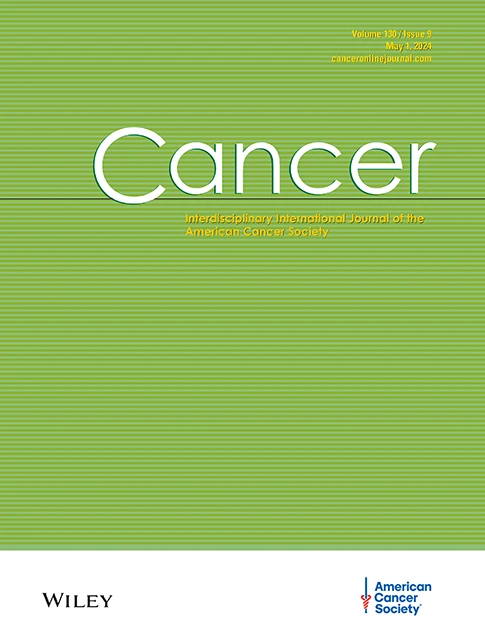Pesticides cause prostate cancer? Cedars Sinai Medical Center epidemiologist criticizes ‘biased’ ecological study
Pesticides cause prostate cancer? Cedars Sinai Medical Center epidemiologist criticizes ‘biased’ ecological study


A recent study published in Cancer, an international interdisciplinary journal of the American Cancer Society, concluded that there is an association between pesticides and incidences of prostate cancer.

Pesticides and prostate cancer incidence and mortality: An environment-wide association study
Abstract
Background
Prostate cancer is the most common cancer among men in the United States, yet modifiable risk factors remain elusive. In this study, the authors investigated the potential role of agricultural pesticide exposure in prostate cancer incidence and mortality.
Conclusions
The results of this study suggest a potential link between certain pesticides and increased prostate cancer incidence and mortality. These findings warrant further investigation of these specific pesticides to confirm their role in prostate cancer risk and to develop potential public health interventions.
This is an excerpt. Read the original post here
______________________________________________________________
Expert reaction to study suggesting [an] association between many pesticides and prostate cancer
A study published in Wiley Cancer looks at an association between pesticides and prostate cancer incidence.
Prof Paul Pharoah, Professor of Cancer Epidemiology, Cedars-Sinai Medical Center, said:
“The epidemiological design used to evaluate the association between pesticides and prostate cancer incidence and mortality in this study is called an ecological study. In an ecological study, the unit of analysis is the population in a given area, and so the correlation studied is that between pesticide levels in a given area and prostate cancer rates in the same area. It is important to note that pesticide exposures and prostate cancer occurrence in individuals was not studied.
“Ecological studies are very prone to bias and can give rise to the ecological fallacy – the assumption that group-level correlation also applies to individuals. Ecological studies are generally regarded as hypothesis generating rather than hypothesis testing. The well-known mantra that correlation does not mean causation is particularly applicable to ecological studies.
“While several associations were identified, no data to suggest that these associations are causal is presented. It is notable that of the four pesticides associated with both incidence rates and mortality rates of prostate cancer three are considered by the Environmental Protection Agency of the USA as not likely to be carcinogenic or have evidence of non-carcinogenicity.”
Read the original post here

 | Videos | More... |

Video: Nuclear energy will destroy us? Global warming is an existential threat? Chemicals are massacring bees? Donate to the Green Industrial Complex!
 | Bees & Pollinators | More... |

GLP podcast: Science journalism is a mess. Here’s how to fix it

Mosquito massacre: Can we safely tackle malaria with a CRISPR gene drive?

Are we facing an ‘Insect Apocalypse’ caused by ‘intensive, industrial’ farming and agricultural chemicals? The media say yes; Science says ‘no’
 | Infographics | More... |

Infographic: Global regulatory and health research agencies on whether glyphosate causes cancer
 | GMO FAQs | More... |

Why is there controversy over GMO foods but not GMO drugs?

How are GMOs labeled around the world?

How does genetic engineering differ from conventional breeding?
 | GLP Profiles | More... |

Alex Jones: Right-wing conspiracy theorist stokes fear of GMOs, pesticides to sell ‘health supplements’




 Viewpoint — Fact checking MAHA mythmakers: How wellness influencers and RFK, Jr. undermine American science and health
Viewpoint — Fact checking MAHA mythmakers: How wellness influencers and RFK, Jr. undermine American science and health Viewpoint: Video — Big Solar is gobbling up productive agricultural land and hurting farmers yet providing little energy or sustainabilty gains
Viewpoint: Video — Big Solar is gobbling up productive agricultural land and hurting farmers yet providing little energy or sustainabilty gains Fighting deforestation with CO2: Biotechnology breakthrough creates sustainable palm oil alternative for cosmetics
Fighting deforestation with CO2: Biotechnology breakthrough creates sustainable palm oil alternative for cosmetics Trust issues: What happens when therapists use ChatGPT?
Trust issues: What happens when therapists use ChatGPT? 30-year-old tomato line shows genetic resistance to devastating virus
30-year-old tomato line shows genetic resistance to devastating virus California, Washington, Oregon forge immunization alliance to safeguard vaccine access against federal undermining
California, Washington, Oregon forge immunization alliance to safeguard vaccine access against federal undermining The free-range chicken dilemma: Better for birds, but with substantial costs
The free-range chicken dilemma: Better for birds, but with substantial costs ‘You have to treat the brain first’: Rethinking chronic pain with Sanjay Gupta
‘You have to treat the brain first’: Rethinking chronic pain with Sanjay Gupta
